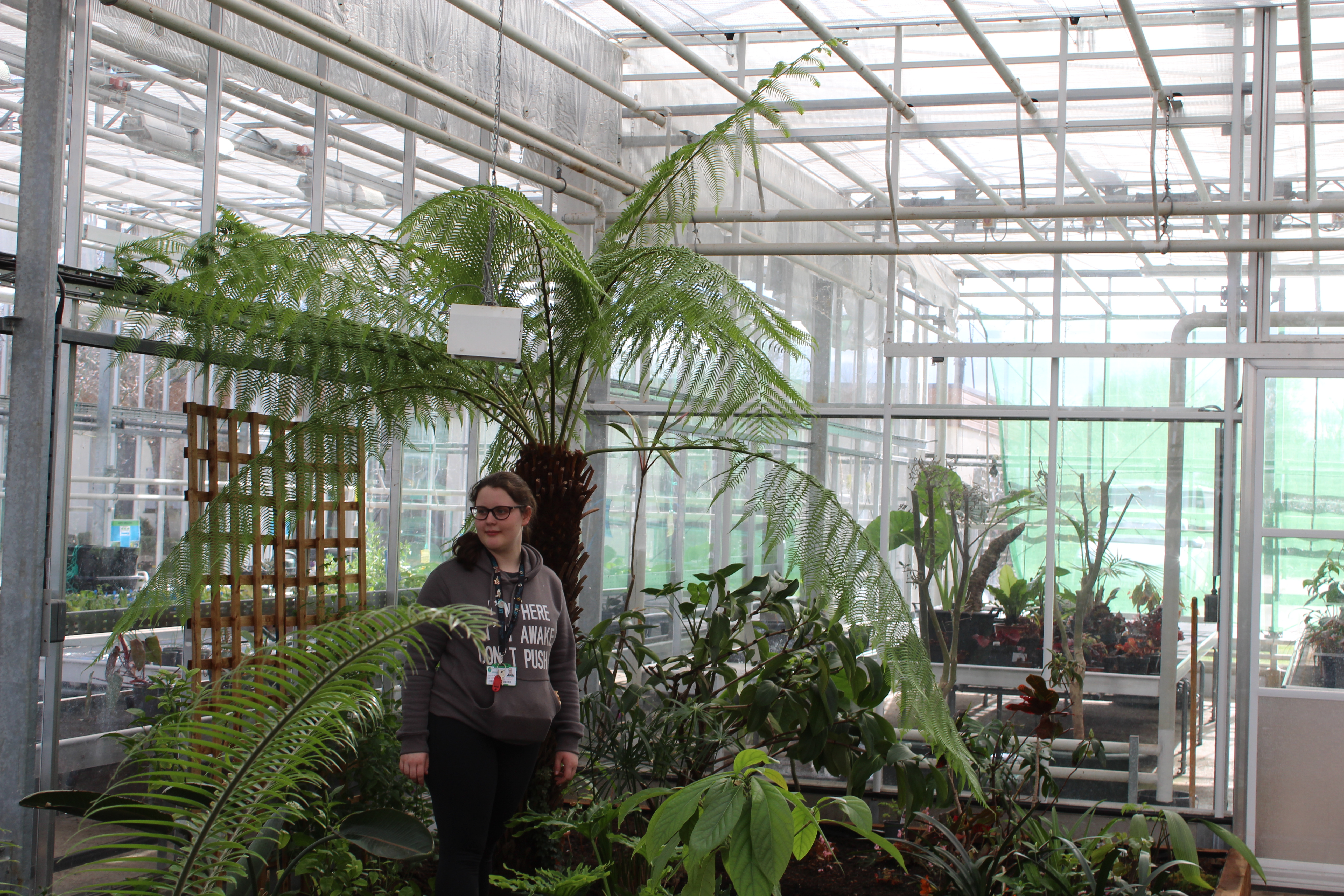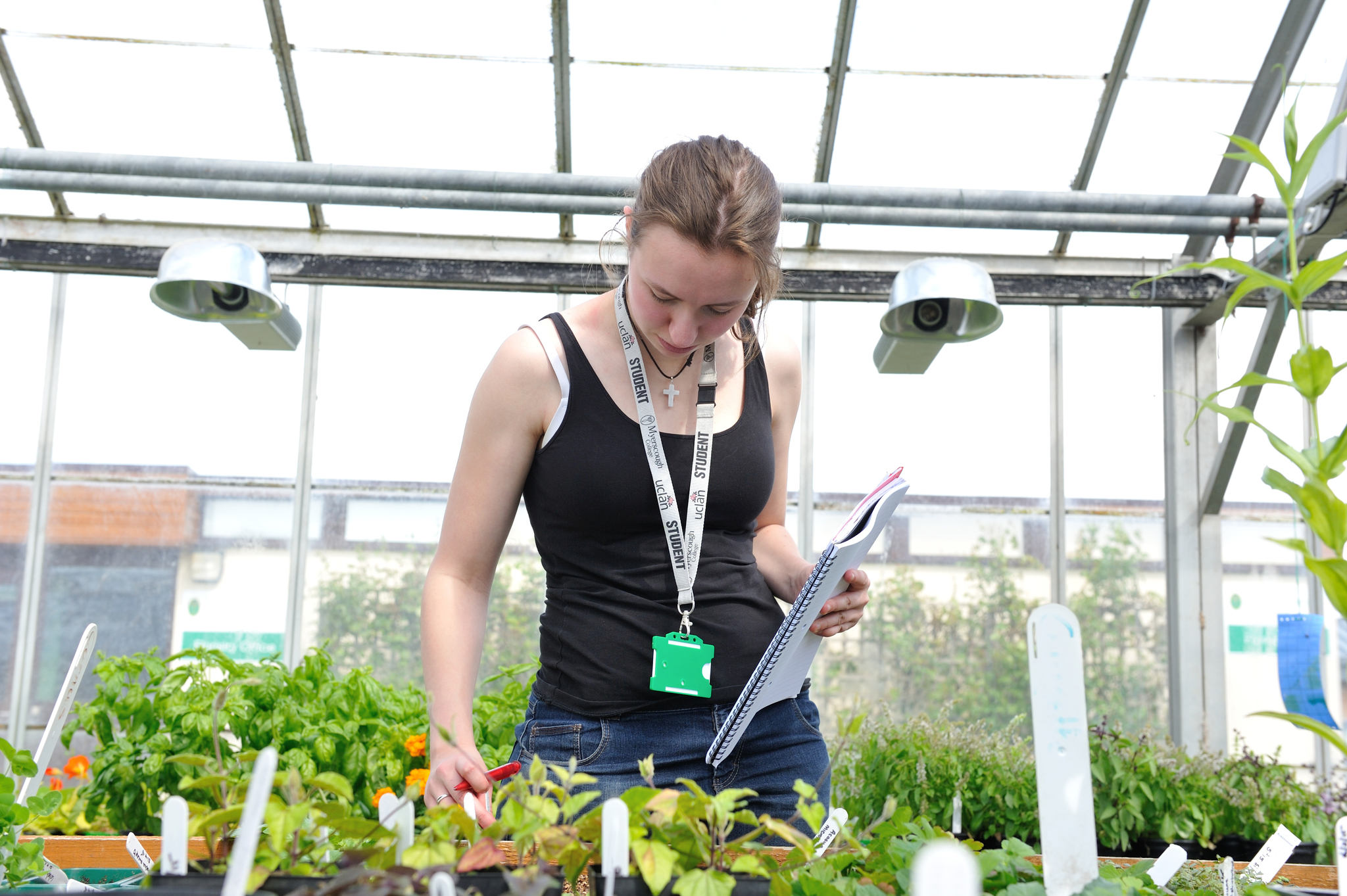Course modules
Knowledge Qualification
Finance
This course provides an introduction to financial management in the land-based sector. Students will learn about budgeting, financial planning, accounting principles, and the financial considerations specific to agricultural, horticultural, and environmental operations.
Plant Growth and Development
This module delves into the biological processes underpinning plant growth and development. Students will study factors affecting tree health, such as soil composition, water and nutrient uptake, and the impact of environmental conditions. Practical applications of this knowledge will be explored in the context of planting, maintenance and care.
Establishing Ornamental and Environmental horticultural areas
Establishing Ornamental and Environmental horticultural areas
Supply Chain
This course examines the supply chain dynamics within the arboriculture sector. Topics include sourcing of arboriculture equipment and materials, understanding market demands, logistics, and ensuring the sustainability and ethical considerations of supply chain practices.
Ethics
This course examines ethical principles and dilemmas in the context of land-based industries. Students will explore topics such as professional integrity, ethical decision-making, and the impact of their work on communities and ecosystems.
Biosecurity
This module focuses on biosecurity measures critical to agriculture. Students will learn about the prevention and management of pest and disease outbreaks, strategies for maintaining animal health, and the protocols necessary to protect ecosystems from invasive species and pathogens.
Business
This comprehensive module covers the fundamentals of running a successful business within the land-based sector. Topics include business planning, marketing, management, and the strategic development of enterprises in agriculture, horticulture, and environmental management.
Communication
Effective communication skills are crucial in land-based sectors. This module focuses on verbal and written communication, active listening, and the use of digital tools to enhance professional interactions in agriculture, environmental management, and animal care.
Equality
This theme addresses the importance of equality and diversity in the workplace. Students will learn about relevant legislation, strategies for promoting inclusivity, and the benefits of a diverse workforce within land-based industries.
Health and Safety
This module covers essential health and safety legislation, regulations, and best practices applicable to land-based industries. Students will learn to identify hazards, assess risks, and implement safety protocols to ensure a safe working environment in agriculture, horticulture, and related fields.
Sustainability
This course explores sustainable practices in land-based sectors. Topics include the principles of sustainability, sustainable resource management, and the importance of integrating eco-friendly practices into professional operations across agriculture, environmental management, and animal care.
Plant Propagation
Plant Propagation
Maintaining Ornamental and Environmental horticultural areas
Maintaining Ornamental and Environmental horticultural areas
Establish Ornamental and Environmental horticultural areas
Ornamental and Environmental horticultural areas
Install landscape features
Install landscape features
Manage existing designed landscapes
Manage existing designed landscapes
Relationship Management
This module teaches students how to build and maintain positive professional relationships. Topics include customer service, conflict resolution, teamwork, and networking strategies, all essential for successful careers in land-based industries.
Working in the Agriculture, Environmental and Animal Care Sector
This module provides an overview of the diverse career opportunities within the agriculture, environmental, and animal care sectors. Students will gain insights into industry standards, job roles, and the skills necessary to succeed in these fields.
Information and Data
In this module, students will explore the importance of information management and data analysis in land-based studies. Topics include data collection methods, data interpretation, and the use of information technology to support decision-making and operational efficiency across various land-based disciplines.
Entry requirements & additional information
Entry requirements
Entry requirements for all T Levels will be a minimum of 5 GCSEs at Grade 4 (including Maths, English Language and Science).
T-Levels are available for 16 to 19-year-old students. They are also available to students up to the age of 24 who have an Education, Health and Care Plan.
Applicants are expected to show a strong commitment to the industry and ideally, have some practical work experience working with animals prior to starting the course.
Learning and assessment
This course is designed for students who wish to develop the core practical skills and knowledge to seek employment in the Animal industry. It will prepare you for entry into a practical employment position within the industry. Alternatively, it provides an ideal progression route to higher education.
Assessment of technical qualifications is a mixture of internal practical assessment of skills conducted by the teaching team, internal written assignments marked by the teaching team, an externally set synoptic examination that combines the knowledge and practical skills of all of the mandatory units, an external online exam that combines the knowledge of all mandatory units, an online health and safety exam and a employer set project. The assessments and exams are spread throughout the two years.
Progression
Upon completing your T level in your Occupational Specialism, you have several options to pursue:
T levels provide the same UCAS points a full A level programme giving you the option of further study in higher education in fields such as landscape architecture, plant sciences, or environmental management.
The technical skills you will acquire also prepare you to enter employment or a higher apprenticeship directly as a skilled horticulturalist, ready to contribute to a wide range of employers including landscaping companies, botanical gardens, nurseries, and more.
Progression onto degree programmes at other universities is dependent upon their own individual entry criteria. This might include specific requirements relating to the type of course being studied, the particular ‘modules’ or ‘units’ studied on a course, the work-experience that you’ve undertaken or even previous GCSE attainment. Entry requirements can also change from year-to-year.
It is essential that, if you have a clear career goal in mind, you check and confirm the entry requirements of your preferred degree programme prior to commencing your Level 3 studies here at Myerscough. Information, Advice and Guidance will be provided by the College to support you in making the right choices, but please ensure that you have taken time to consider your future career goals and the specific entry requirements at other universities. The UCAS website is a good starting point: https://www.ucas.com/
Careers
Employment opportunities the horticulture industry are currently very good and the T Level provides the qualification and experience for entry into the industry at an operational level with future prospects for management.
Opportunities include:
Landscape designer – create outdoor spaces that enhance the environment
Plant nursery manager – manage nursery operations, and the production and distribution of a diverse range of plants
Greenhouse technician – Manage greenhouse facilities to cultivate crops efficiently and sustainably
Horticulturalist – work in plant care and management across a range of settings, including parks, estates, and conservation projects.
Work experience
In order to successfully complete your T level qualification, you will need to complete a minimum of 315 hours (45 days or 9 working weeks) of Industry Placement with a maximum of two employers. We will assist you in helping to secure a suitable placement.
T level Industry Placements are expected to provide you with real work experience as part of your wider studies. It should be linked to your main course of study so you can develop up to date technical knowledge, and skills and apply your college learning to real work activities. Your placement should reflect your pathway, and be related to your occupational specialism.


Latest news, Horticulture
-
#GroundsWeek: Celebrating the key role of the turf care sector to sport
- Published
- Monday 17 March
-
T-Level student recognised in Young Horticulturist of the Year competition
- Published
- Thursday 13 March
-
Myerscough takes care of one of the rarest plants on Earth
- Published
- Tuesday 7 January
-
Myerscough learners recognised among the best at WorldSkills finals
- Published
- Tuesday 26 Nov 2024
-
Horticulture degree student wins national award
- Published
- Friday 8 Nov 2024







